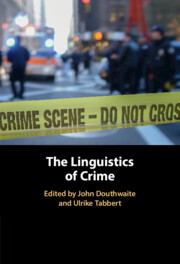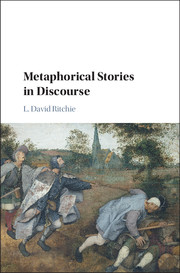The Linguistics of Crime
Bringing together scholars from a range of disciplines, this book explores the analysis of crime-related language. Drawing on ideas from stylistics, pragmatics, cognitive linguistics, metaphor theory, critical discourse analysis, multimodality, corpus linguistics, and intertextuality, it compares and contrasts the linguistic representation of crime across a range of genres, both fictitious (crime novels, and crime in TV, film and music), and in real life (crime reporting, prison discourse, and statements used in courts). It touches on current political topics like #BlackLivesMatter, human (child) trafficking, and the genocide of the Kurds among others, making it essential reading for linguists, criminologists and those with a general interest in crime-related topics alike. Covering a variety of text genres and methodological approaches, and united by the aim of deciphering how crime is portrayed ideologically, this book is the next step in developing research at the intersection of linguistics, criminology, literature and media studies.
- Offers a broad variety of linguistic and literary approaches to the study of crime related texts.
- Provides a variety of examples of different written and multimedia text genres, analysed using a 'linguistic toolkit'.
- Addresses current political and socio-economic issues.
Reviews & endorsements
‘A wide range of potential readers, from non-experts to researchers seeking current insights, will find this volume appealing due to its formal features and engaging content. The multi disciplinarity of the chapters enhances the pedagogical potential of the book, making it equally appropriate for the consultation of specific chapters.’ Enrique Munoz-MantazLanguage in Society
Product details
January 2023Hardback
9781108471008
300 pages
235 × 158 × 23 mm
0.66kg
Available
Table of Contents
- 1. Editorial Introduction John Douthwaite
- 2. The Metaphoric and Metonymic Conceptualisation of the Other Zoltán Kövecses, John Douthwaite
- 3. Prison Metaphors: Conveying the Experience of Confinement Monika Fludernik
- 4. Ideology in Mainstream Crime Fiction John Douthwaite
- 5. A Critical and Stylistic Analysis of the Depiction of the Transnational Human Trafficking Victim in Minette Walters' The Cellar Christiana Gregoriou
- 6. The Linguistic Construction of Political Crimes in Kurdish-Iraqi Sherko Bekas' Poem The Small Mirrors Mahmood K. Ibrahim, Ulrike Tabbert
- 7. Stylistic Aspects of Detective Fiction in Translation: The Case of the Murders in the Rue Morgue in Slovenian Simon Zupan
- 8. Transnational Adaptations of Sherlock Holmes: A Relevance-theoretic Discussion Anne Furlong
- 9. The Ethical Effects of Voice-over Narration on a Victim Testimonial: A Text-World Analysis of 'The Bed Intruder' Meme
- M'Balia Thomas
- 10. Realising Betrayal: A Multimodal Stylistic Analysis of a Scene from the TV Series The Sopranos Simon Statham
- 11. 'Nossa Vida e Bandida': Reading Rio Prohibited Funk from a CDA Perspective Andrea Mayr
- 12. Deviant Mind Style of a Schizophrenic Offender Ulrike Tabbert
- 13. Narrower, or Broader Ground? The Role and Function of Metaphors in Legal Discourse Douglas Mark Ponton, Marco Canepa
- 14. Condemning the Condemners: The Portrayal of Regulators in UK News about Corporate Crime Ilse A. Ras
- 15. Ideology in Critical Crime Fiction John Douthwaite.



